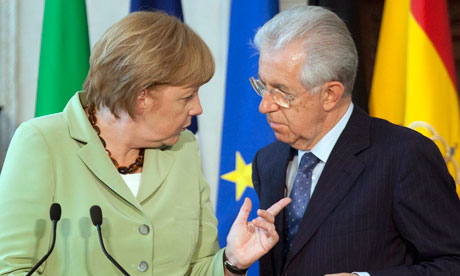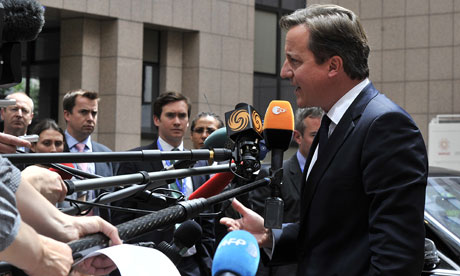I have found no new developments in Europe.
The Republican party refuses to recognize defeat.
The soon to be ex governor of New Jersey is deluded.
Flavor Is Price of Scarlet Hue of Tomatoes, Study Finds
By GINA KOLATA
A gene mutation that breeders latched onto because it makes a tomato uniformly red also stifles genes that contribute to its taste, researchers say.
It is a plot.
http://www.nytimes.com/2012/07/03/science/oldest-known-pottery-found-in-china.html?ref=science
"Fragments of ancient pottery found in southern China turn out to date back 20,000 years, making them the world’s oldest known pottery — 2,000 to 3,000 years older than examples found in East Asia and elsewhere.
The ceramics probably consisted of simple concave vessels that were likely used for cooking food, said Ofer Bar-Yosef, an archaeologist at Harvard and an author of the study, which appears in the journal Science.
“What it seems is that in China, the making of pottery started 20,000 years ago and never stopped,” he said. “The Chinese kitchen was always based on cooking and steaming; they never made, as in other parts of Asia, breads.”
The crockery, found in Xianrendong Cave in Jiangxi Province, belonged to a group of mobile foragers, Dr. Bar-Yosef said. They were a hunting and gathering community; plant cultivation and agriculture probably did not arrive until about 10,000 years later.
On the other hand, plant cultivation in the Middle East arrived about 1,000 years before it did in China. Still, pottery was not used in the Middle East until much later, Dr. Bar-Yosef said.
“The kitchen of the Middle East was probably based on barbecues and pita breads,” he said. “For pita breads, you don’t have to have pottery — you can grind the seeds and mix it with water, and make it over the fire.”"
There is a tradition of steamed breads and boiled dumplings as old as grain culture.
This picture of Chinese prehistory is excessively simple.
The Han did not arrive until much later.
http://en.wikipedia.org/wiki/History_of_China
This looks to be the Han in China.
Text and reference check:
"
The Neolithic age in China can be traced back to between 12,000 and 10,000 BC.[6] Early evidence for proto-Chinese millet agriculture is radiocarbon-dated to about 7000 BC.[7] The Peiligang culture of Xinzheng county, Henan was excavated in 1977.[8] With agriculture came increased population, the ability to store and redistribute crops, and the potential to support specialist craftsmen and administrators.[9] In late Neolithic times, the Yellow River valley began to establish itself as a cultural center, where the first villages were founded; the most archaeologically significant of those was found at Banpo, Xi'an.[10] The Yellow River was so named because of loess forming its banks gave a yellowish tint to the water.[11]
The early history of China is made obscure by the lack of written documents from this period, coupled with the existence of accounts written during later time periods that attempted to describe events that had occurred several centuries previously. In a sense, the problem stems from centuries of introspection on the part of the Chinese people, which has blurred the distinction between fact and fiction in regards to this early history.
By 7000 BC, the Chinese were farming millet, giving rise to the Jiahu culture. At Damaidi in Ningxia, 3,172 cliff carvings dating to 6000-5000 BC have been discovered "featuring 8,453 individual characters such as the sun, moon, stars, gods and scenes of hunting or grazing." These pictographs are reputed to be similar to the earliest characters confirmed to be written Chinese.[12][13] Later Yangshao culture was superseded by the Longshan culture around 2500 BC."
Out of range.
To be continued.




















